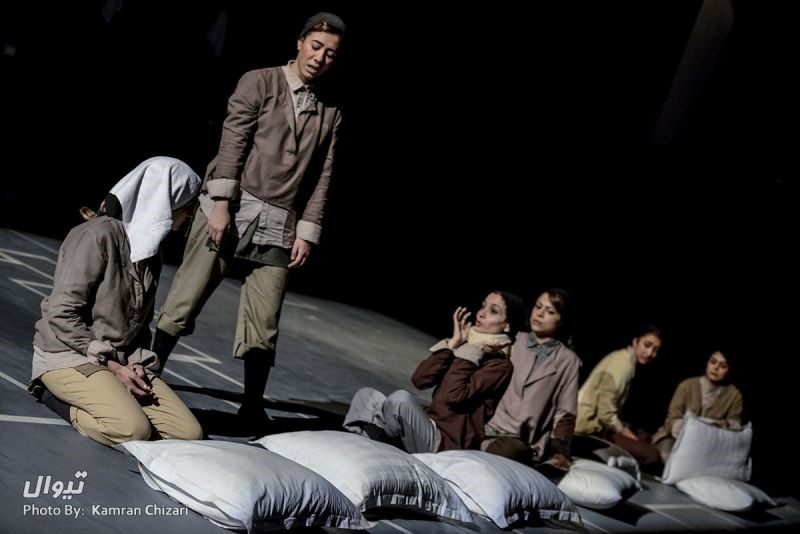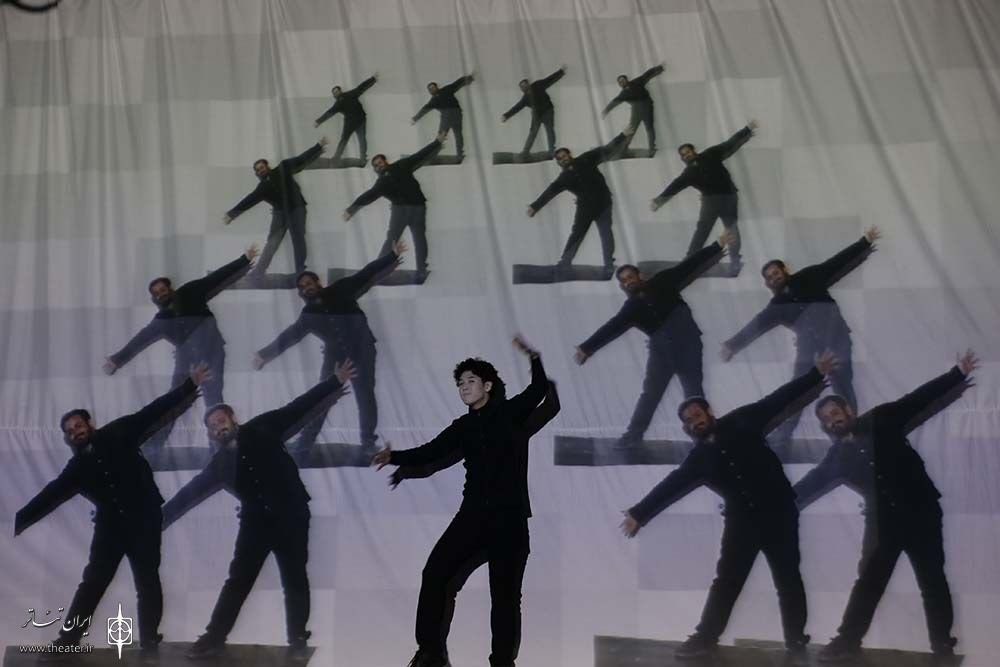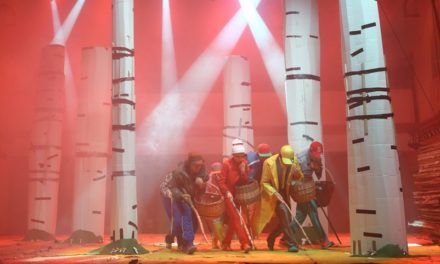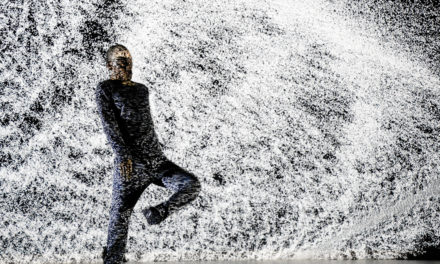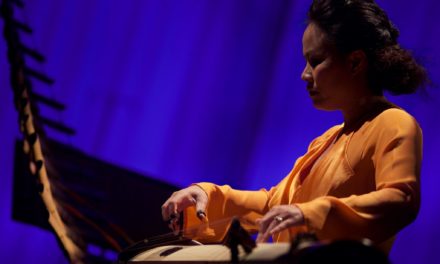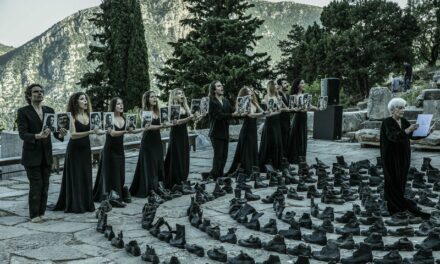The 35th edition of the Fadjr International Theatre Festival (FITF) ran from 20–31 January 2017, in Tehran, paying tribute to the victims of the fire incident at the Plasco Building.
This edition of the FITF had Saeed Asadi as the artistic director and hosted ten international performances and nineteen Iranian shows in the official competition sections. This year’s performances came from Spain, France, Iraq, Turkey, Georgia, Poland, the Netherlands, Bulgaria, Greece, Switzerland, and Japan. The festival’s multinational jury members were from Iran, Greece, South Korea, and the Netherlands.
The festival featured the sections “New Generation of Iranian Theatre Practitioners,” “Annual Review of Iranian Theatre Performances,” “International Performances,” “Guests,” “Environmental, Interactive and Outdoor Theatre Performance,” “+Fadjr,” “Playwriting Competition,” “Contest and Exhibition of Photography of Theatre ,” and “The Contest and Posters Exhibition and Visual Identity.” Of these sections, three were designated as competitive: “New Generation of Iranian Theatre Practitioners,” “Annual Review of Iranian Theatre Performances,” and “International Theatre Performances.”
In the research section of FITF, eight research articles to be published in the FITF collections of essays were selected and received honorarium. Establishing the Board of Critics, consisting of twenty theatre critics and directed by Amin Azimi, was another measure taken by the FITF officials to support and develop the trend of theatre criticism and writing about theatre. Each day of the FITF, the critics prepared criticism of selected plays in three formats: written, multimedia and live discussions. This year’s festival awards were in the following fields: Grand prix, Special Jury Award, stage design, direction, script, actor, actress, music, costume design, makeup, and theatre photo. The 35th Fadjr International Theatre Festival also held several workshops taught by international scholars and artists on playwriting, acting, marketing, and cultural management.
Promoting the culture of resistance and the narrative of “sacred defence” (referring to the Iran–Iraq war) have been the top priorities of festival officials. The word fadjr means “the growing light of sunrise,” and since the establishment of the Islamic Republic following the 1979 Revolution, it refers to the overthrow of the Shah. Each year for ten days in February, the Permanent Secretariat of Festivals organizes celebratory events commemorating the revolution, and the FITF in Tehran has been one of these events since 1982. In this edition of the FITF, seven performances staging sacred defence values and narratives and comedies dramatizing war were showcased in the sections “Annual Review of Iranian Theatre Performances,” “Regional Theatre,” and “Environmental and Street Theatre.”
Another unique feature of the 35th edition of the Fadjr theatre festival was the visits of several state authorities. Ministers, members of parliament, and a few other military, religious and political authorities were among the audiences, and their presence was interpreted by many as a positive move in support of Iran’s theatre.
Artistic Profile of the 35th FITF
The most highly acclaimed Iranian plays of the event were Setareh Aminiān’s The Tenant, Nima Dehqān’s Immortality, Masoud Rāyegan’s Death Angel, and Cloudy House, by Siāmak Ehsāee and Hamid Pourāzari.
According to the director of the international section of the FITF, Mehrdad Rayani Makhsoos, the most important parameters in selecting foreign performances were innovative style of representation and the use of technology and intermediality in performance.
There were a few cross-cultural and collaborative works: the Iranian director Arvand Dasht-Aray directed Reconsider Your Image of Me on stage with an Iranian and Dutch cast. This play dramatizes the theme of intercultural misunderstanding and the role of theatre in addressing some of this misunderstanding. Another collaborative work was Beyond Words, which was produced in Lyons by Litecox Company in August 2016, and went on stage with a French and Iranian cast and crew on January 27 and 28 in the Arghanoon Theatre Hall. Beyond Words is a movement-driven play and has no dialogue. Its dramaturgy is based on a combination of drama technique, movement, video and shadows. Using and combining different sounds of nature is another feature of this show. Beyond Words was written by the Iranian artist Jafar Mahyari and directed by the French director Daisy Fel.
The Japanese presentation of their video projection dance Siro-A shone on the FITF stage and attracted lots of attention. Their fusion of visual and lighting effects, rainbow colors, techno soundtracks and Japanese cultural images aroused astonishment at the FITF.
Marathon Reading of Homer’s Epic Odyssey was another collaborative project. It was managed by Katerina Balamoti and performed by 120 Iranian performers, NGOs of the Readers of Homer and Elliniko Theatro.
Other international performances that won the attention of Iranian audiences and critics were Choir of the Orphans, by the prominent Polish director Jerzy Zon; and I, Sisyphus, by Veselka Kuncheva, from Bulgaria; You Are Not a Fish After All, by Mihran Tomasyan, from Turkey; and Psychosis, by Maka Natsvlishvili, from Georgia.
One of the highlights of this edition of the FITF was the presence of Eugenio Barba and his multinational Odin Teatret ensemble and their 75-minute performance of The Tree, an allegory of current global events. In addition to this performance, during his stay in Iran, Barba gave a workshop, attended a press conference, and watched Ta’ziyeh (commemorative Persian plays) at Tehran’s City Theatre Complex.
This post was written by the author in their personal capacity.The opinions expressed in this article are the author’s own and do not reflect the view of The Theatre Times, their staff or collaborators.
This post was written by Marjan Moosavi.
The views expressed here belong to the author and do not necessarily reflect our views and opinions.

